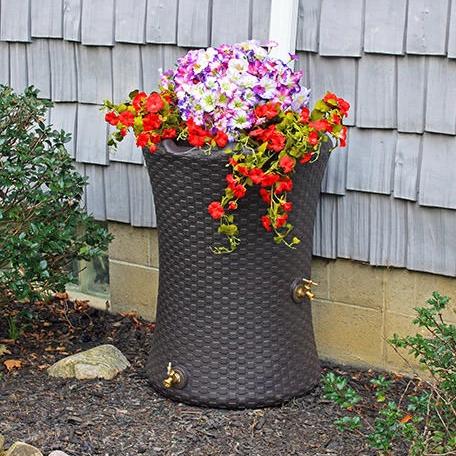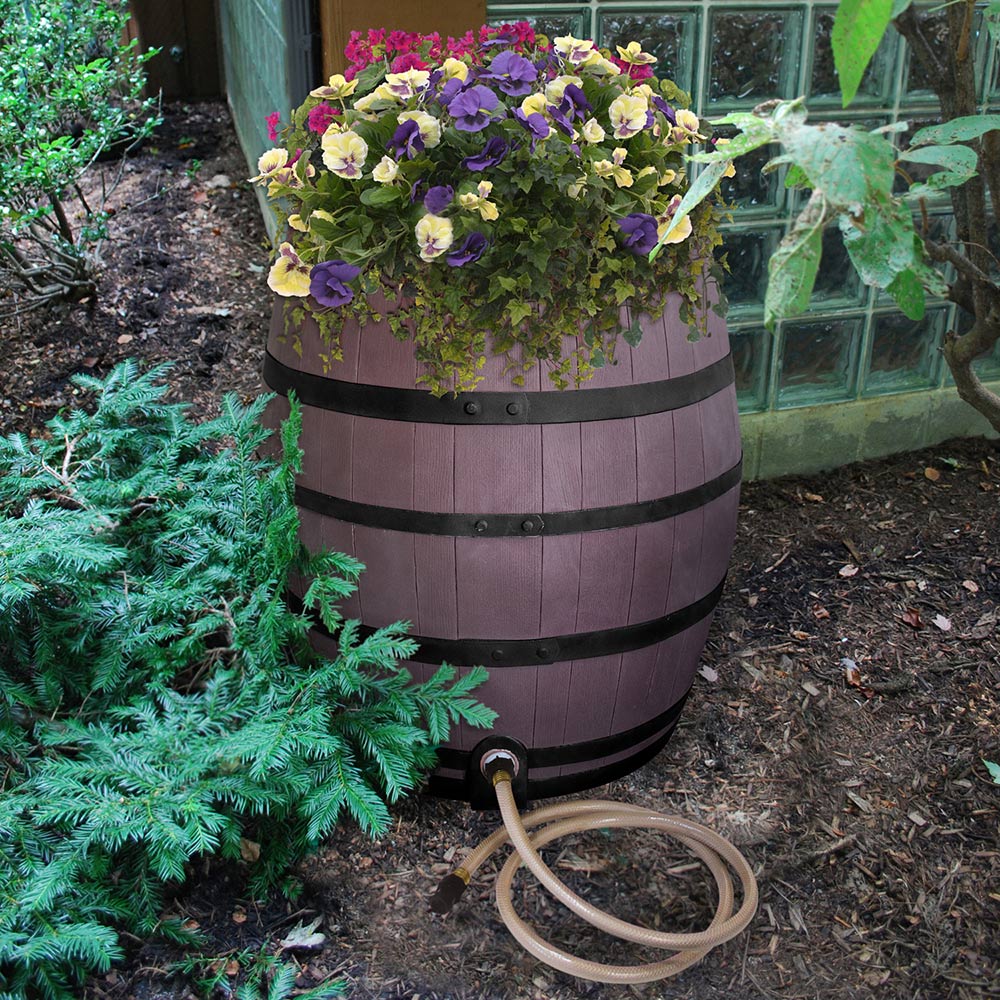As an avid gardener and sustainability enthusiast, I’ve always been on the lookout for ways to enhance my outdoor space while being eco-friendly. One of the best decisions I’ve made was to incorporate decorative rain barrels into my garden. Not only do they serve a practical purpose by conserving water, but they also add character and charm to my landscape. In this article, I’ll share some creative decorative rain barrel ideas that you can implement in your garden, along with tips, comparisons, and answers to frequently asked questions!
Understanding Rain Barrels and Their Benefits
What is a Rain Barrel?
A rain barrel is a container used to collect and store rainwater, typically from your roof, through a downspout. This water can then be used for watering plants, gardens, or even flushing toilets.
Benefits of Using Rain Barrels
- Conserves water and saves on utility bills
- Reduces stormwater runoff
- Provides chemical-free irrigation
- Enhances your garden’s aesthetics
Types of Decorative Rain Barrels

1. Wooden Rain Barrels
Wooden barrels evoke a rustic charm that can complement any garden style. They can be left natural or stained to match your outdoor decor.
2. Plastic or Resin Rain Barrels
These lightweight options come in various colors and designs, making them a versatile choice for any garden. Many models are designed to mimic natural materials.

3. Ceramic Rain Barrels
Ceramic rain barrels can act as stunning focal points due to their beautiful glaze and artistic designs. However, they’re usually more expensive and less durable than plastic options.
Creative Decorative Rain Barrel Ideas

1. Painted Designs
Personalizing your rain barrel with paint can reflect your personality. You can opt for floral patterns, abstract art, or a mural that matches your garden theme.
2. Repurposed Containers
Old whiskey barrels, wine barrels, or even large clay pots can be transformed into unique rain barrels. This eco-friendly choice adds character and can often be found at lower costs.

3. Floral Accents
Surround your rain barrel with climbing plants or flowers. Consider using trellises to allow vines to grow over the barrel, creating a lush, integrated look.
Example of Floral Arrangement
| Plant Type | Growth Rate | Suitability |
|---|---|---|
| Morning Glory | Fast | Excellent for coverage |
| Sweet Peas | Medium | Colorful and fragrant |
| Honeysuckle | Fast | Attracts pollinators |

4. Decorative Toppers
Add a decorative topper to your rain barrel, such as a birdhouse, a sculpture, or a wreath. This can make your rain barrel look more like a garden feature than a functional object.
5. Mosaic Designs
Applying mosaic tiles to a rain barrel can create a vibrant and eye-catching design. It can be a fun DIY project that offers a personal touch to your garden.

Key Considerations When Choosing a Decorative Rain Barrel
Material
When selecting a rain barrel, consider the climate. For areas with extreme weather, durable materials like resin or heavy-duty plastic are ideal.
Size
The size of your rain barrel should correspond to the area you want to irrigate. Remember, larger barrels capture more water but will take up more space.
Color and Design
Choose a color that complements your home and garden. Your rain barrel can either stand out as a decorative piece or blend in seamlessly.
Pros and Cons of Decorative Rain Barrels
Pros
- Environmentally friendly
- Cost-effective water source
- Enhances garden aesthetics
- Encourages sustainable practices
Cons
- Initial investment might be high
- Maintenance and cleaning are necessary
- Can attract insects if not properly maintained
Installation Tips for Your Rain Barrel
Location Selection
Place your rain barrel close to a downspout for effective water collection. Ensure it’s in a shady area to reduce algae growth.
Proper Setup
Use a stand to elevate your rain barrel for better water flow when using a spigot.
Connect to Downspout
Use a diverter system or a simple cut in your downspout to direct rainwater into your rain barrel efficiently. Ensure all connections are secure to prevent leaks.
Maintenance of Your Decorative Rain Barrel
Cleaning the Rain Barrel
Regularly clean your rain barrel every season to prevent algae growth and mosquito breeding. Use a mild detergent and scrub the interior.
Winter Care
In colder climates, empty your rain barrel before winter to prevent cracking. Store it indoors if possible.
Conclusion
Choosing a decorative rain barrel can significantly enhance your garden while contributing to water conservation. With countless styles and ideas available, the possibilities are endless. My personal experience has shown that incorporating a rain barrel not only helps in managing water usage but also adds a unique touch to my outdoor space. I encourage you to explore different ideas and find the perfect decorative rain barrel that suits your garden’s aesthetic!
FAQs About Decorative Rain Barrels
1. How do I know what size rain barrel I need?
The size depends on your water needs and the space available. A 50-80-gallon barrel is typically sufficient for most home gardens.
2. What is the best material for a rain barrel?
Plastic, resin, and wood are popular options. Choose one that best fits your climate and aesthetic preferences.
3. Can I use my rain barrel for drinking water?
It’s not recommended to use rainwater collected in a barrel for drinking without proper filtration and treatment.
4. What should I do if my rain barrel overflows?
Ensure that your rain barrel has an overflow outlet that directs excess water away from your home’s foundation.
5. Are decorative rain barrels more expensive than regular ones?
They can be slightly more expensive due to aesthetics, but many affordable decorative options are available.